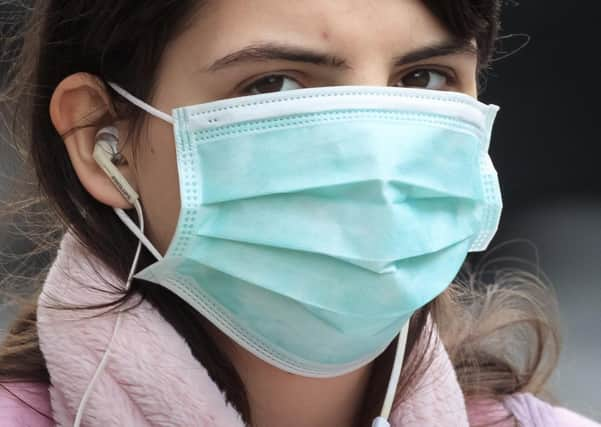How coronavirus has utterly changed our way of life – Helen Martin


OUR future economy comes with a depressing prediction of how we will recover after the pandemic – even if it doesn’t require another lockdown.
The overall UK is claimed to be the worst in the developed world, but Scotland is suspected to be even worse than the rest of Britain with its virus performance and its big, vulnerable sectors such as tourism. On top of that the UK has the likelihood of a no-deal Brexit.
Advertisement
Hide AdAdvertisement
Hide AdThe challenge of rebuilding the economy is very complicated with businesses all desperate to reopen and restart, hoping to return to the income they brought in before the virus. It won’t be that simple.
Around 30,000 jobs have been wiped out, almost 800,000 are existing on furlough and grants, and there are many more statistics on the upsetting effects on tourism, hospitality, retail, construction and many other businesses.
If everything had shut down for only four weeks, recovery would have been easy. The problem now is that life – and people – have changed over four months.
Some people now have no income apart from benefits. Many have built up debts over the lockdown, hence our population will be spending and buying less for a while.
Advertisement
Hide AdAdvertisement
Hide AdThere has been a vast surge in dealing online, especially with the retail shut down. For young to middle-aged people that was an automatic move. But older people who always dealt with local suppliers and retailers, have been converted to the internet and delivery, for food shopping, garden and household stuff, clothes, birthday presents – the lot.
With more people working from home rather than in their office, that’s changed lives too. I’ve heard from family and friends that their working locations are being reconsidered by legal firms, accountants, letting agents and many more. It may save the companies’ output, but cleaners, receptionists and maintenance teams could be hit.
Meetings and discussions have become normal on Zoom-type technology rather than over restaurant lunches or catered office buffets.
Long-term lockdown had people learning more about cooking, simple DIY and other services they’d usually paid for. Women are desperate for hairdressers opening up again but my husband’s now happy with me cutting his hair and my son’s bought electric clippers for his short cut. Barbers are out.
Advertisement
Hide AdAdvertisement
Hide AdAll our lives are changing. Even most GP and vet surgeries who have had to switch to “e-consultations”, phone calls, and other methods of diagnosis and prescriptions, are considering these systems for the future if personal examination isn’t necessary.
Car ownership will decline with carbon neutrality so that will limit some local travel, and the same might apply to flights and cruises.
We will all want restaurants, bars, holidays and entertainments but perhaps not as much as before in terms of what’s affordable and how we get there.
How producers deal internationally after Brexit, how tourism grows to a sustainable level, how quickly coronavirus is dealt with, how we all pay for the cost of it, how we prepare for any other global virus hits, and how our lives and practices have changed after this pandemic, is a complex bunch of questions for restoring finances.
Advertisement
Hide AdAdvertisement
Hide AdBut construction and specialist trades will pick up, carry on and grow with queues of customers already waiting for repairs, double glazing and essential works, plus a government committed to more housing.
Digital technology will continue to develop and hopefully so will all other sectors, including tourism, as long as they re-plan, rethink and rebuild in a changed, rather than doomed, economy.
The one thing few industries can do is just revert to pre-coronavirus days, charge as much, and expect a rapidly restored bank balance.
A message from the Editor
Thank you for reading this story on our website. While I have your attention, I also have an important request to make of you.
Advertisement
Hide AdAdvertisement
Hide AdIn order for us to continue to provide high quality and trusted local news on this free-to-read site, I am asking you to also please purchase a copy of our newspaper.
Our journalists are highly trained and our content is independently regulated by IPSO to some of the most rigorous standards in the world. But being your eyes and ears comes at a price. So we need your support more than ever to buy our newspapers during this crisis.
With the coronavirus lockdown having a major impact on many of our local valued advertisers - and consequently the advertising that we receive - we are more reliant than ever on you helping us to provide you with news and information by buying a copy of our newspaper.
Thank you
Joy Yates
Editorial Director
Comment Guidelines
National World encourages reader discussion on our stories. User feedback, insights and back-and-forth exchanges add a rich layer of context to reporting. Please review our Community Guidelines before commenting.